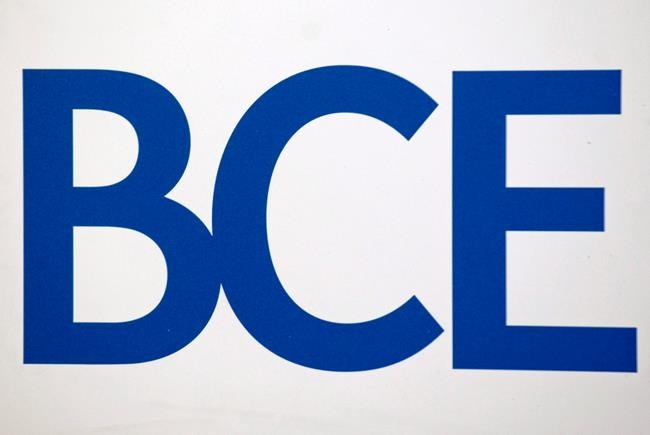BCE picks Nokia as first 5G network supplier, raises dividend on higher profit
Advertisement
Read this article for free:
or
Already have an account? Log in here »
To continue reading, please subscribe:
Monthly Digital Subscription
$0 for the first 4 weeks*
- Enjoy unlimited reading on winnipegfreepress.com
- Read the E-Edition, our digital replica newspaper
- Access News Break, our award-winning app
- Play interactive puzzles
*No charge for 4 weeks then price increases to the regular rate of $19.00 plus GST every four weeks. Offer available to new and qualified returning subscribers only. Cancel any time.
Monthly Digital Subscription
$4.75/week*
- Enjoy unlimited reading on winnipegfreepress.com
- Read the E-Edition, our digital replica newspaper
- Access News Break, our award-winning app
- Play interactive puzzles
*Billed as $19 plus GST every four weeks. Cancel any time.
To continue reading, please subscribe:
Add Free Press access to your Brandon Sun subscription for only an additional
$1 for the first 4 weeks*
*Your next subscription payment will increase by $1.00 and you will be charged $16.99 plus GST for four weeks. After four weeks, your payment will increase to $23.99 plus GST every four weeks.
Read unlimited articles for free today:
or
Already have an account? Log in here »
Hey there, time traveller!
This article was published 06/02/2020 (2134 days ago), so information in it may no longer be current.
TORONTO – Bell Canada has signed its first 5G wireless network supplier agreement with Nokia of Finland, a global rival of China’s Huawei and Ericsson of Sweden, but signalled that it wants to have multiple suppliers to preserve flexibility.
The selection of Nokia as Bell’s supplier of radio access network equipment (RAN) comes as the Canadian government continues an extensive analysis of the cyber security and national security implications of 5G networks.
Mirko Bibic, chief executive of both BCE Inc. and Bell, stressed in a call with analysts that the Nokia deal is only its first 5G agreement.

“What I’m trying to signal here is that we need to be able to work with many equipment suppliers, today and in the future,” Bibic said.
“Today, that includes Nokia, it includes Huawei, it includes Ericsson, it includes Cisco. And it’s always prudent to have multiple supply sources and we’re always looking for that flexibility.”
The United States has warned Canada, the United Kingdom and other allies that it will limit intelligence sharing with countries that have Huawei equipment in their 5G networks — citing the potential for spying by China, an allegation Huawei denies.
Canada, which is under pressure from China to release Huawei’s chief financial officer after she was arrested in Vancouver at the request of the United States, hasn’t announced the results of its security review.
Bibic wouldn’t comment on the implications of a U.K. decision to allow Huawei to supply up to 35 per cent of the less risky radio access network, which includes radio antenna on cellphone towers.
“But we’re ready to deploy initial 5G service, because we will always be competitive,” Bibic said.
The CEO of Rogers Communications — parent of the Rogers, Fido and Chatr mobile services — said in its fourth-quarter report on Jan. 22 that it’s running 5G pilots and has finished testing Samsung’s first 5G phones for Canada.
BCE, the parent of Bell Mobility, Virgin Mobile and Lucky Mobile, said Thursday that it will deliver initial fifth-generation service in urban centres across Canada as 5G smartphones come to market this year.
The 5G announcements by Bell, Canada’s largest telecom and media company, came Thursday as its parent BCE Inc. raised its dividend and reported that its fourth-quarter profit grew more than 10 per cent compared with a year ago.
The company said it will now pay a quarterly dividend of 83.25 cents per share, up from 79.25 cents per share.
BCE also reported a profit attributable to common shareholders of $672 million or 74 cents per share for its fourth quarter ended Dec. 31, up from a profit of $606 million or 68 cents per share a year ago.
Operating revenue totalled nearly $6.32 billion, up from nearly $6.22 billion in the same quarter last year.
On an adjusted basis, BCE says it earned 88 cents per share for the quarter, down from an adjusted profit of 89 cents per share a year ago.
Analysts on average had expected an adjusted profit of 89 cents per share for the quarter, according to financial markets data firm Refinitiv.
BCE’s wireless segment added 123,582 subscribers during the quarter, bringing the total to just under 10 million. Of the net additions during the quarter ended Dec. 31, 121,599 were post-paid, beating analyst estimates.
In addition to the wireless subscriber growth, BCE added 35,639 retail high-speed internet subscribers and 22,039 subscribers to its IPTV land-line television services — offset by a loss of 21,618 subscribers to its satellite TV service.
Canaccord Genuity had estimated Bell would add 105,000 net postpaid subscribers during the quarter, down from 122,000 for the fourth quarter of 2018.
Canaccord analyst Aravinda Galappatthige wrote Thursday that “wireless sub loading was notably ahead of expectations while internet adds also came in stronger.
“Importantly, wireless was steady despite heavy market activity and volatility in the space,” Galappatthige added.
This report by The Canadian Press was first published Feb. 6, 2020.
Companies in this story: (TSX:BCE, TSX:RCI.B)



